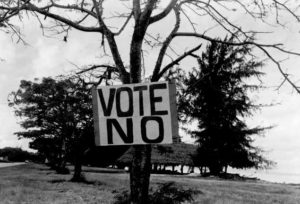
On Tuesday, Houston voters will decide the fate of roughly $1.5 billion of proposed bonds, in the form of Propositions A through E. Proposition A will authorize roughly a billion dollars of borrowing (in the form of Pension Obligation Bonds, or POBs) partially to make up years of underfunding of the Houston Police Department and Municipal Employees pension funds. Propositions B through E will authorize roughly half a billion dollars in borrowing so the City can spend money on items that it has neglected despite collecting record annual revenues over most of the last decade-plus.
Propositions B through E represent pre-Harvey thinking, in that they direct not one dime towards needed drainage and street improvements. They should be rejected to send city leaders a message that they need to get serious about managing the city’s financial priorities going forward.

Proposition A is more complicated, in that voter approval of the bond initiative is a required component of the so-called “pension reform” that was agreed by Houston’s mayor and city council, the state legislature, and two of the city’s three major public-sector unions. If voters reject Proposition A, then the “pension reform” deal is off and the status quo prevails.
Mayor Sylvester Turner has been assuring the public that no tax increase will be required to fund the POBs or the other bonds. Conveniently, however, the ballot language for every single one of these bonds begins with the stated purpose of the bonds and concludes with a reference to “the levying of taxes sufficient for the payment thereof and interest thereon.”
The mayor’s communications director, Alan Bernstein, has told local media that this is boilerplate legal language. Maybe, but it sure reads like tax-increase-enabling language, especially when coupled with the following language:
Shall the City Council of the City of Houston, Texas, be authorized to issue bonds of the City, which may be called City of Houston, Texas, Pension Obligation Bonds in the amount of $1,010,000,000, maturing serially or otherwise at such times as may be fixed by the City Council, not to exceed 40 years from their date or dates and bearing interest at any rate or rates, either fixed, variable or floating, according to any clearly stated formula, calculation or method, not exceeding the maximum interest rate now or hereafter authorized by law, and to sell said bonds at any price or prices, all as shall be determined within the discretion of the City Council at the time of issuance, and to levy a tax upon all taxable property in the City annually sufficient to pay the principal of and interest on the bonds (together with any bonds that may be issued to refund the bonds) as it accrues or accretes, and to provide a sinking fund for the payment of the principal of the bonds (together with any bonds that may be issued to refund the bonds) as they mature, as well as all payments under any credit agreements, such tax to be levied without being limited by any provisions of the City’s home rule charter limiting or otherwise restricting the City’s combined ad valorem tax rates or combined revenues from all City operations…
That highlighted “boilerplate” language also sounds like a mechanism by which the City of Houston can try to get around the property tax revenue cap without holding an actual vote on the issue (one that Mayor Turner would likely lose). That’s enough reason itself for taxpayers to reject Proposition A, especially given Mayor Turner’s repeated promises to go after the property tax revenue cap and his stealth effort to raise property taxes after Hurricane Harvey even after he said he would not.
It is true that rejecting Proposition A will force area political elites back to the drawing board on their grand “pension reform”. However, the fact is that sensible fiscal watchdogs who have studied Houston public finance for many years don’t believe that the negotiated “reform” actually solves the problem, but that we will instead be revisiting the issue in just a few years. Bill Frazer, who opposes Proposition A, rightly suggests that the POB component sounds much like previous can-kicking. While Bill King is now a tepid POB supporter, his earlier arguments on the shortcomings of the “corridor” and other components of the “reform” are more compelling than his recent about-face on the POB issue, and King believes that the “reform” itself provides only a temporary reprieve. Other financial watchdogs (including Bob Lemer, Jim Noteware, Bill Frazer, and myself) remain concerned that the fundamental problem remains unsustainable promises, which the “reform” addresses only at the margins (hence the ambiguity on how the “corridor” might work and even the amount of the savings from agreed benefit reductions).
The fact is that there is no such thing as “free” money in public finance. If there were, the City could just borrow an amount equal to the entire unfunded liability of its public sector pensions and be done with it! The reality is, the principal and interest of any funds the City borrows will have to be repaid – Mayor Turner is just proposing that the generation of political leaders that follows him (and the next generation or two of Houstonians) will have to deal with what are effectively bigger balloon payments on what will be one heap of a jalopy when the note finally comes due.
Vote NO on all the municipal bonds, and send a message to our politicians that Houston can and must do better.





Thanks. I needed guidance on this. Unca D